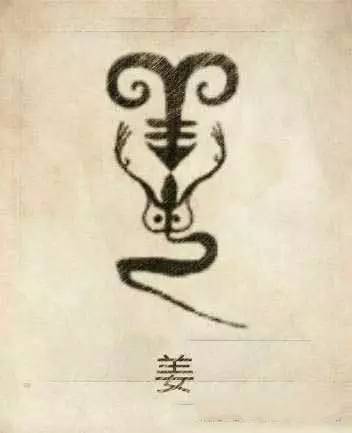The Jiang(jiāng) surname, one of the oldest and most significant surnames in Chinese culture, carries a profound historical and cultural legacy. As descendants of the legendary Emperor Yan (the Flame Emperor) and Shennong (the Divine Farmer), the Jiang surname not only witnessed the dawn of Chinese history but also left an indelible mark on the development of Chinese civilization. Originating in ancient times, the Jiang surname has evolved over thousands of years, becoming a vital symbol of Chinese culture.

Ⅰ、Origins and Evolution of the Jiang Surname
1.The Origin of Emperor Yan and Shennong
The Jiang surname is one of the oldest Chinese surnames, tracing its roots back to Emperor Yan and Shennong, the legendary figures credited with founding Chinese agriculture and medicine. According to Shuowen Jiezi (an ancient Chinese dictionary), Emperor Yan was born near the Jiang River (in present-day Baoji, Shaanxi Province), and thus adopted "Jiang" as his surname.
2.The Establishment of the Qi State
During the early Western Zhou Dynasty, Jiang Shang (also known as Jiang Ziya) assisted King Wu of Zhou in overthrowing the Shang Dynasty. For his contributions, Jiang Shang was granted the territory of Qi, establishing the Jiang-led Qi State, which later became one of the most powerful states during the Spring and Autumn Period. After the Tian family usurped the Qi State during the Warring States period, some descendants adopted "Qi" as their surname, while others retained "Jiang."
3.Integration of Ethnic Minorities
Throughout history, several ethnic groups adopted the Jiang surname. For example, during the Tang Dynasty, Huan Tingchang was granted the Jiang surname for his merits. Additionally, ethnic groups such as the Qiang during the Southern Song Dynasty and the Manchu (e.g., the Jiangjia and Zhangjia clans) during the Qing Dynasty also adopted the Jiang surname, enriching its cultural diversity.
Ⅱ、 Historical Figures and Their Contributions
1.Ancient Figures
Jiang Ziya (Jiang Shang): A founding figure of the Zhou Dynasty and the ancestor of the Qi State, Jiang Ziya is renowned for the legend of "Jiang Taigong fishing." His military strategies and governance philosophies have had a lasting impact on Chinese history, and he is a central figure in Chinese folklore and mythology.
Jiang Wei: A prominent general during the Three Kingdoms period, Jiang Wei inherited Zhuge Liang's legacy and became a symbol of loyalty and bravery for his "Nine Expeditions to the Central Plains."
Jiang Kui: A Southern Song Dynasty poet and musician, Jiang Kui is celebrated for his masterpiece Yangzhou Man, which revolutionized Chinese poetry and earned him the title of "Master of the Rhyme-Prose School."
Jiang Ligang: A Ming Dynasty calligrapher known for his exceptional regular script, his works are treasured as national treasures in Japan.
Jiang Chenying: A calligrapher and one of the "Three Commoners of Jiangnan" during the early Qing Dynasty, his works are preserved in the Palace Museum.
2.Modern Figures
Jiang Kun: A renowned cross-talk (Xiangsheng) performer who has modernized traditional Chinese comedic art.
Jiang Wen: A contemporary film director and actor whose works, such as Let the Bullets Fly, blend historical allegory with dark humor, creating cultural phenomena.
Ⅲ、Cultural Significance and Heritage
1.Clan Traditions and Core Values
The Jiang surname is deeply rooted in Confucian values, as seen in family instructions like the Changyi Jiang Family Ten Rules, which emphasize "respecting ancestors" and "helping the needy." These traditions combine the ideals of "farming and scholarly pursuits" with "practical governance."
2.Influence on Thought and Values
Symbol of Agricultural Civilization: The Jiang surname's association with Emperor Yan and Shennong reflects its deep connection to China's agrarian roots. Many Jiang families use "Jiashe Hall" as their ancestral hall name, commemorating Shennong's teachings on farming.
3.Literary and Artistic Legacy: Jiang Kui's poetic and musical innovations and Jiang Ligang's calligraphy exemplify the Jiang surname's tradition of "using culture to convey moral principles."
Ⅳ、Social Impact and Modern Development
1.Population Distribution and Migration
The Jiang surname is the 60th most common surname in China, with approximately 4.6 million people. It is concentrated in Shandong, Henan, and the three northeastern provinces, accounting for 57% of the total Jiang population. During the Ming and Qing dynasties, Jiang families migrated to Fujian and Guangdong, and in modern times, they have established transnational clan networks.
2.Contributions to Modern Culture
Science and Technology: Figures like Jiang Zhonghong, a materials scientist who advanced China's optical glass research, and Jiang Boju, a mathematician renowned for his breakthroughs in topology, highlight the Jiang surname's contributions to modern science.
Philanthropy: Jiang clan associations continue to uphold their social responsibilities through initiatives like funding education and restoring historical sites.
Ⅴ、Conclusion
The history of the Jiang surname is a microcosm of Chinese civilization's development. From its origins in the era of Emperor Yan to its modern-day influence, the Jiang surname has remained deeply intertwined with China's cultural and historical evolution. As we look to the future, the Jiang surname will continue to preserve its rich traditions while contributing to the cultural and social advancements of the modern era. This millennia-old surname will undoubtedly play a significant role in the great rejuvenation of Chinese civilization.